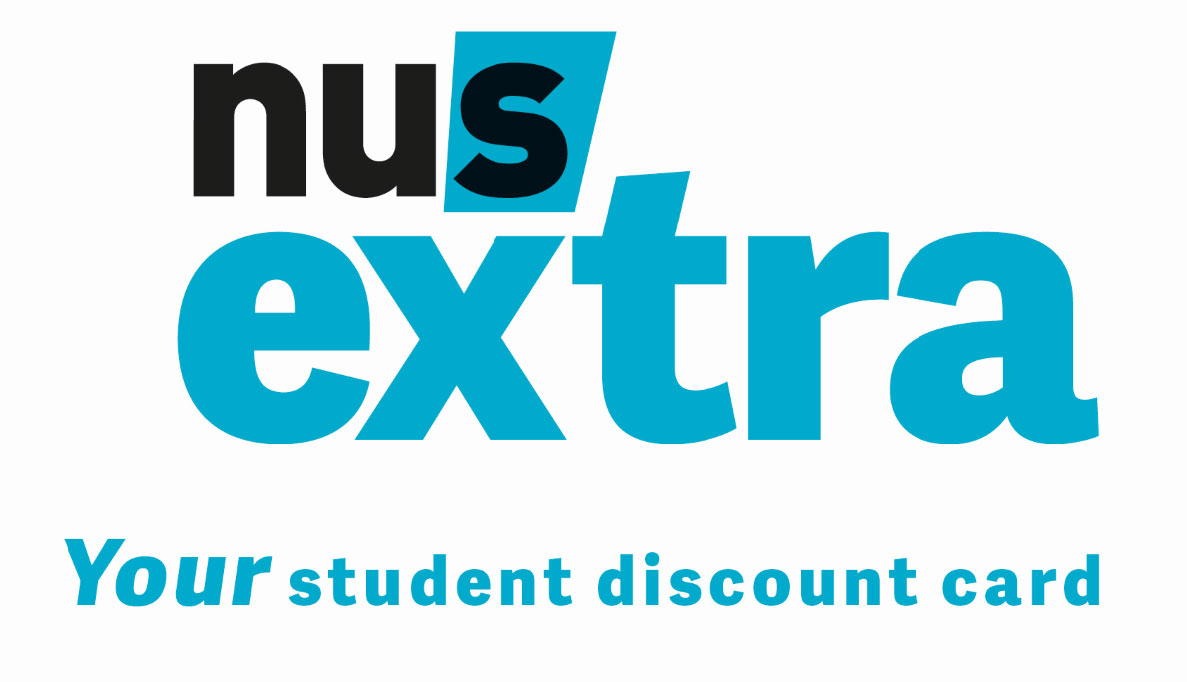Overview
If you wish to pursue a career in education, or study childhood studies at university, but lack the qualifications that are required, Access to Higher Education Diploma (Education) will provide you with the opportunity to get back into education, qualify and turn your dreams into a reality.
Access to Higher Education Diplomas are designed for learners who have been out of education for an extended period of time that wish to return to study. They have been created as alternatives to traditional qualifications (e.g. A-levels) and equip students with the knowledge and skills to tackle a university study programme with confidence. Completing an Access to HE Diploma is a long-established and accepted route to university and the majority of UK universities welcome applications from students working towards, or holding, this qualification. It is important to check the entry requirements of the universities you wish to apply to, however, as all university admission criteria differ.
Not only could Access to Higher Education Diploma (Education) be your ticket to university, but it will also prepare you for study at a higher academic level. Modules on academic writing skills and independent research will teach you to organise your time, write with relevance and summarise for academic purposes, whilst education and child development focused units will provide you with the entry knowledge you need to excel on any education, teaching or childhood studies degree programme.
Upon successful completion of this course, you will have an excellent grounding in the world of education. As a result, you will be able to confidently apply for a number of undergraduate education and childhood-related degree programmes. Access to Higher Education Diploma (Education) is the first step in your journey towards higher education and, potentially, a successful career in education.
Why study an Access to Higher Education Diploma with Highbury College?
Once you have enrolled onto your Access to Higher Education Diploma (Education), you will be given 24/7 online access to interactive and easy-to-follow materials that cover a range of topics, including: classroom teaching, child protection, child development and the management of pupil behaviour. As part of your study programme, you will also receive support and guidance on your university application so that you can get the most from your diploma.
As this is a distance learning course, our Access to Higher Education Diploma (Education) is flexible and allows you to study at the pace that suits you. So, don’t worry if you have work commitments or other responsibilities that take up your time. Our Access to Higher Education Diplomas have been designed with you and your busy schedule in mind.
Nervous about taking this step towards your future? You needn’t be. You will have a dedicated personal tutor who will be available to contact for assistance. You will be supported every step of the way.
The amount of time required to complete this course is approximately 600 hours and you’re free to do this in as little as 6 months or over 18 months if you require extra time.
If you’re worried about funding this course, you may be eligible for an Advanced Learner Loan. The minimum loan you can get is £300 and you won’t need to pay anything back until you’re earning at least £25,000 per annum. If you go on to complete an undergraduate degree following your Access to Higher Education Diploma, you won’t have to pay the loan back at all.
Modules for this course
Module 1: Preparing to study
On completion of this module you will:
- Understand how study is organised and planned
- Understand how to apply theories of learning in relation to personal approaches to learning
- Understand a range of constraints upon study
- Understand the importance of assessment feedback
Module 2: Academic writing skills
On completion of this module you will:
- Be able to write with relevance in responding to an academic task
- Know how to interpret and discuss concepts and debates in responding to a set, academic writing task
- Be able to summarise for academic purposes, selecting key points, information or central ideas
- Understand the role of reference, allusion and paraphrase to avoid plagiarism
Module 3: Preparing a written assignment
On completion of this module you will:
- Understand how to use key information sources
- Understand why sources are acknowledged and referenced
- Understand a range of reading strategies
- Understand note-making methods
- Understand how to plan draft and produce a written assignment
Module 4: Independent research
On completion of this module you will:
- Be able to plan a piece of research on an approved subject area
- Be able to collect research material from different sources
- Be able to use data to substantiate an argument
- Be able to record sources of information
- Be able to present research findings
Module 5: An introduction to classroom teaching
On completion of this module you will:
- Plan and prepare for teaching within the National Curriculum
- Understand the importance of classroom design
Module 6: Progressing to Higher Education
On completion of this module you will:
- Understand potential next steps in education
- Understand key sources of information relevant to HE application
- Understand personal HE opportunities
- Understand the financial implications of further study
- Know how to apply for a course
Module 7: Theories of child development
On completion of this module you will:
- Understand Piaget’s theory of development
- Understand the major criticisms of Piaget’s work in child development.
- Understand alternative theories of development.
- Understand how stages of development link to practical situations.
Module 8: Behaviour problems in the classroom
On completion of this module you will:
- Recognise anti-social behaviour
- Recognise anti-institutional behaviour
- Understand the formal discipline processes/procedures of a school
- Understand the informal methods of implementing discipline within a classroom setting
- Understand some of the underlying causes of behavioural problems as displayed in the classroom
Module 9: Roles, responsibilities & relationships in education
On completion of this module you will:
- Understand the role and responsibilities of the teacher/trainer
- Understand the need to maintain a safe and supportive learning environment
- Understand the professional relationships between teachers and trainers engaged in education
Module 10: Human nutrition & the digestive system
On completion of this module you will:
- Understand the structure and functions of the organs of the digestive system
- Understand nutrients and their sources
- Understand how diet may influence health
Module 11: The human musculo-skeletal system
On completion of this module you will:
- Understand anatomical terminology
- Understand the skeletal system and locomotion
- Understand the muscular system
Module 12: Human reproduction, growth & development
On completion of this module you will:
- Understand the structure and function of the human reproductive system
- Understand how hormones regulate the reproductive tract throughout life
- Understand the sequence of events from conception to puberty
Module 13: Theories of cognitive development & learning
On completion of this module you will:
- Have knowledge of theories of cognitive development
- Understand learning theory
- Have knowledge of the application of theories of learning and cognitive development to classroom practice
Module 14: Child protection
On completion of this module you will:
- Know how to plan action learning relating to child protection
- Understand areas of anti discriminatory practice and core social work values relating to child protection
- Understand legal and policy frameworks relating to child protection
- Understand and explore relevant theoretical perspectives relating to child protection that inform practice
- Understand skills relating to working in child protection that inform practice
Module 15: Understanding the intellectual & language development of children aged birth to eight years
On completion of this module you will:
- Understand the stages of intellectual development of children
- Understand the stages of language development of children
- Demonstrate knowledge and understanding of the importance of communicating with young children
- Demonstrate knowledge and understanding of factors, which affect intellectual and language development in children
Module 16: Play
On completion of this module you will:
- Define ‘play’
- Show knowledge of stages of play
- Show knowledge of life stage theory
- Understand the ways in which children learn through play
Module 17: Introduction to teaching & learning
On completion of this module you will:
- Understand models of teaching and learning
- Understand ‘blocks’ to learning
- Understand curriculum planning and lesson planning
Module 18: Child development & management of pupil behaviour
On completion of this module you will:
- Be aware of the physical, intellectual, language, emotional and social development of the child
- Understand the main aspects of social and emotional development
- Know factors which may affect pupil development and behaviour
- Know methods for managing pupil behaviour
Module 19: The developing child
On completion of this module you will:
- Display knowledge of the process of Child Development
- Display knowledge of theories of cognition and socialisation
- Display knowledge of studies and debates over the concept of intelligence
- Understand processes of developing psychological schemas
Requirements
To start an Access to Higher Education Diploma you will need an English and maths GCSE at grade A - C/ 4 - 9 or a Functional Skills Level 2 qualification in both subjects.
Access to Higher Education Diplomas fulfil the entry criteria for range of different university courses and are suitable for the UCAS application process. However, it is advantageous to check the requirements of each establishment that you want to apply to before submitting your application in order to avoid disappointment. Admission criteria may include, but is not limited to:
- Having a set number of credits attained at Merit or Distinction level
- Attendance and success at a face-to-face interview at chosen university
- Passing the university’s proprietary literacy and numeracy assessments
- Successful completion of mandatory work placements or work experience
Learners must also undertake their own independent research to ensure that their diploma is properly specified, which will give them the best possible chance of getting into university. The student is responsible for their own research and they should begin this as soon as possible after starting the course. Highbury College will not accept any responsibility or liability if any Access to Higher Education Diploma student fails to secure an offer from a Higher Education institution.
Assessment
Access to Higher Education Diploma (Education) is modular and composed of graded and ungraded units that allow you to quickly and easily absorb the course material in bitesize chunks. At the end of each unit you will complete an assignment which your tutor will evaluate and give you feedback on. The feedback is aimed to show you how effective your piece of work is, its quality, and how you can improve in the future. These assignments are important to your learning process as they are signposts of your progress throughout the course.
In order to achieve this qualification, you will need to attain a total of 60 learning credits. 45 of these will be taken from graded units for the subjects with academic content, whilst the other 15 units are ungraded units relating to study skills.
In order to gain your diploma you need to successfully pass all units within the course.
Important notice: Online access is required in order to access your course content and submit your assignments.
AIM Qualifications and Assessment Group Access to Higher Education Diploma (Education)
Following successful completion of this diploma you will be awarded a QAA recognised Access to HE Diploma at level 3 (QAA ref:40003887). This diploma has been assigned 60 credits.
AIM Qualifications and Assessment Group

AIM Qualifications and Assessment Group is a national Awarding Validating Agency, regulated by the Quality Assurance Agency for Higher Education (QAA) and Qualifications Wales, to develop, maintain and award nationally recognised qualifications.
AIM Qualifications and Assessment Group work proactively with employers, training providers, colleges, universities, schools and voluntary and community organisations to offer vocational credit-based qualifications, Access to Higher Education Diplomas and quality assured Customised Accreditation that enables learners gain employment or to progress into further learning and Higher Education. AIM Qualifications and Assessment Group also Quality Endorse organisations internal training and skills delivery.
Developing your career
The most obvious career for those with an interest in childhood studies and education is teaching. If you aspire to teach and nurture the next generation then a teaching undergraduate degree or PGCE is ideal for gaining Qualified Teacher Status (QTS). Once you have obtained this, you can practice as a teacher and you could continue your training to specialise in a specific area of teaching (e.g. special educational needs). However, there are many of other occupations relating to the field of education, including:
- Health play specialist
- Teaching assistant
- Family support worker
- Education consultant
- Learning mentor
- Community education officer
- Education administrator
No matter which career path you choose to pursue, Access to Higher Education Diploma (Education) will equip you with the skills and knowledge you need to take your study further and invest in your future.
Course Fees
Price £3,384.00Payment methods
(No repayments until your salary reaches £27,295)
Further Information
Course ref: 40003887
Course starts: Anytime
Notional Learning Hours: 600
Modules: 19
GET YOUR NUS EXTRA CARD


